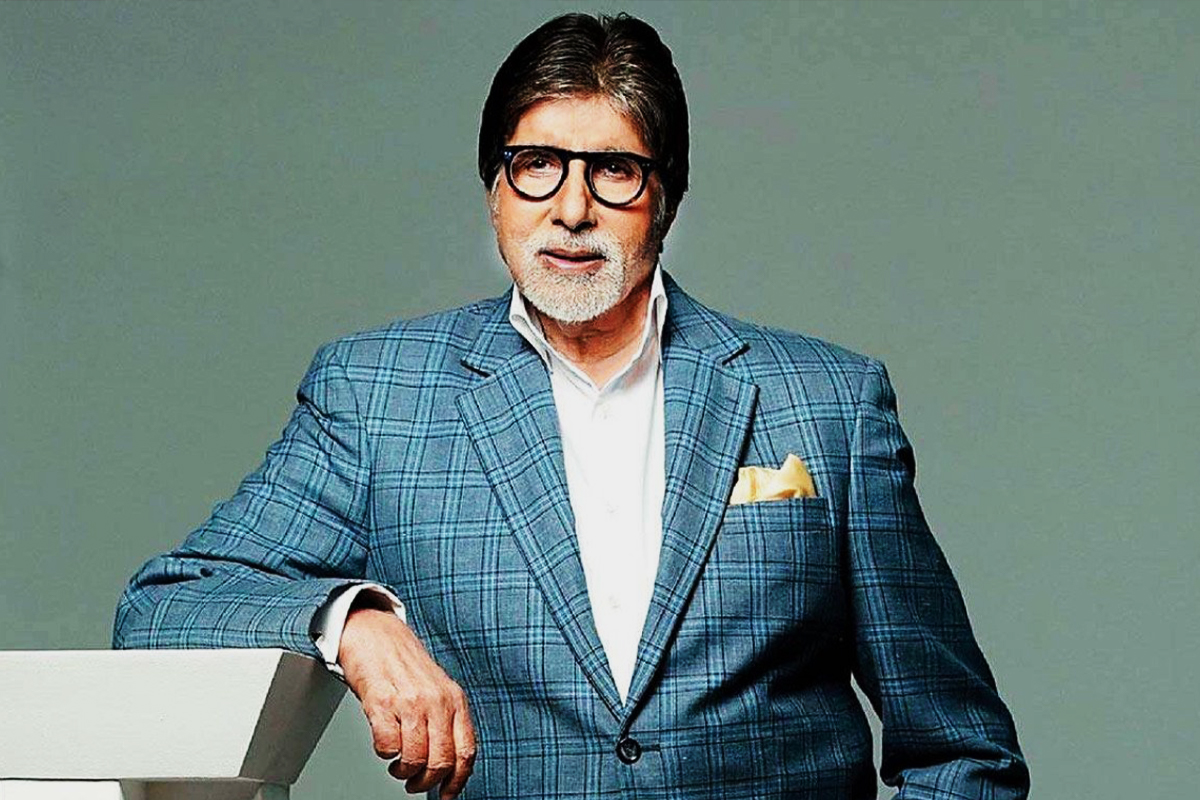
Be it versatility, acting finesse or longevity, Amitabh Bachchan always remained streets ahead of his contemporaries.

There’s an old maxim in Bollywood that the place at the top is like a revolving door. While many actors have sustained their stardom and have enjoyed fairly long careers, their periods of untrammeled domination – when they were the undisputed numero uno – were usually brief.
Rajesh Khanna was a phenomenon between 1969 and 1974 but worn to a frazzle in subsequent years. Dharmendra was rock-steady as a leading actor for 25 years (1966-1992) but occupied the top slot only for a few years. Moreover, after turning 60, both of them didn’t get consistent work even as character actors.
Three Khans – Salman, Shah Rukh and Aamir – are going strong for 30 years but none of them has been consistently no.1. All three of them have been numero uno at different times in the last three decades. It’s a tall order to pick who has been first among equals at the turnstiles.
But there is one actor who has defied all the conventional norms and has outstripped his contemporaries by a mammoth margin. Though Amitabh Bachchan made his Bollywood debut in 1969 with ‘Saat Hindustani’, he was catapulted to fame with Prakash Mehra’s ‘Zanjeer’ which was released in 1973 and became a superhit.
The role of ‘Vijay Khanna’, written by Salim-Javed duo, heralded the ‘Angry Young Man’ prototype which became synonymous with Bachchan. In the next three years, he cranked out blockbusters such as ‘Sholay’, ‘Deewar’, ‘Hera Pheri’ and ‘Amar Akbar Anthony’.
He finally toppled Dharmendra and became an undisputed no.1 in 1978 by reeling off the top three highest grossers of the year – ‘Muqaddar Ka Sikandar’, ‘Trishul’ and ‘Don’.
He resolutely held onto the numero uno position for the next 10 years, despite facing stiff competition from Jeetendra in the early 1980s, until the release of ‘Shahenshah’ in 1988. In 1989, his two big-budget films – ‘Toofan’ and ‘Jaadugar’ helmed by his long-standing patrons Manmohan Desai and Prakash Mehra came a cropper at box office and signified the end of his brute dominance.
Thereafter, Amitabh endured a protracted trough – professionally and financially – from 1992 to 1999. Though his standing and stature were still intact and he was ahead of his contemporaries, he seemed like a spent force as a leading star. Meanwhile, youngsters like Aamir Khan, Salman Khan and Shah Rukh zoomed on the horizon and became the reigning superstars of the nation.
During the same time, his company Amitabh Bachchan Corporation Ltd (ABCL) went kaput and he was reeling under the mountain of debt.
However, how he reinvented himself and sallied back with a determined force in 2000 is now a part of Bollywood folklore. His resurrection started with ‘Kaun Banega Crorepati’ – a TV show which became a rage and Aditya Chopra’s ‘Mohabbatein’. Bachchan got the same billing as SRK in the movie and almost stole a march on him.
Suddenly, all those producers and directors who had deserted him were again making a beeline to sign him on the dotted lines. After 2000, he again became the busiest actor in the town along with a slew of advertisements in his kitty. All his contemporaries – Dharmendra, Jeetendra, Rajesh Khanna and Vinod Khanna – were either retired by then or were only getting largely inconsequential roles.
But Bachchan was once again bagging the leading roles in movies helmed by prominent names. In the next decade (2000-2009), he whipped out winning performances in successful films such as ‘Baghban’, ‘Black’, ‘Kabhi Khushi Kabhie Gham’, ‘Bunty Aur Babli’, ‘Cheeni Kam’ and ‘Khakee’ to name a few. In fact, in ‘Baghban’, ‘Black’ and ‘Cheeni Kam’, he was the sole leading male star and those films were completely riding on him.
In the last decade as well, he continued his rampage with movies such as ‘Piku’, ‘Pink’, ‘Badla’ and ‘102 Not Out’. The noteworthy point is that his roles were neither minuscule nor inconsequential in almost all the films he has done post-2000.
An actor pulling off such diverse roles with aplomb and still delivering at the ticket counters as a star in his 70s remains an unparalleled example in Bollywood. It speaks volumes about his versatility, adaptability and skill as an actor, and his seemingly durable stardom.
One might argue that Salman has emulated or even bettered some of his box-office records but he had to relentlessly jostle with his contemporaries Aamir and SRK – both of whom have been almost as successful as him at the turnstiles throughout his career. But in the case of Bachchan, it has been a one-horse race as far as his contemporaries are concerned. Also, in terms of versatility and acting finesse, Bachchan is streets ahead of all the Khans.
What Bachchan achieved in his second innings in the post-2000 era, after he turned 60, is simply stupendous. Khans are now in their late 50s and it will be interesting to see if they can reinvent themselves and remain relevant as leading men in the next two decades. For that, they only have Bachchan to look up to.